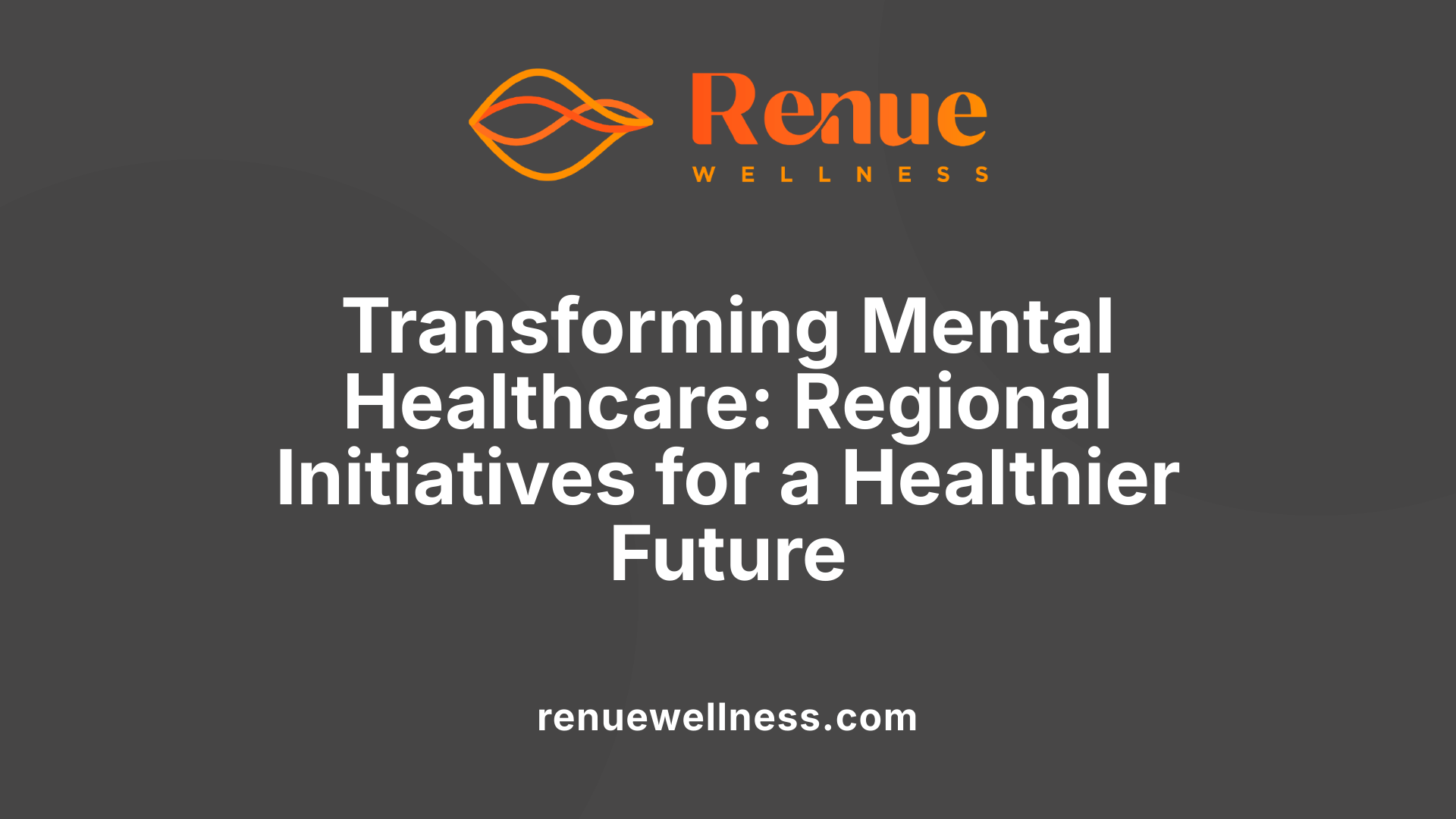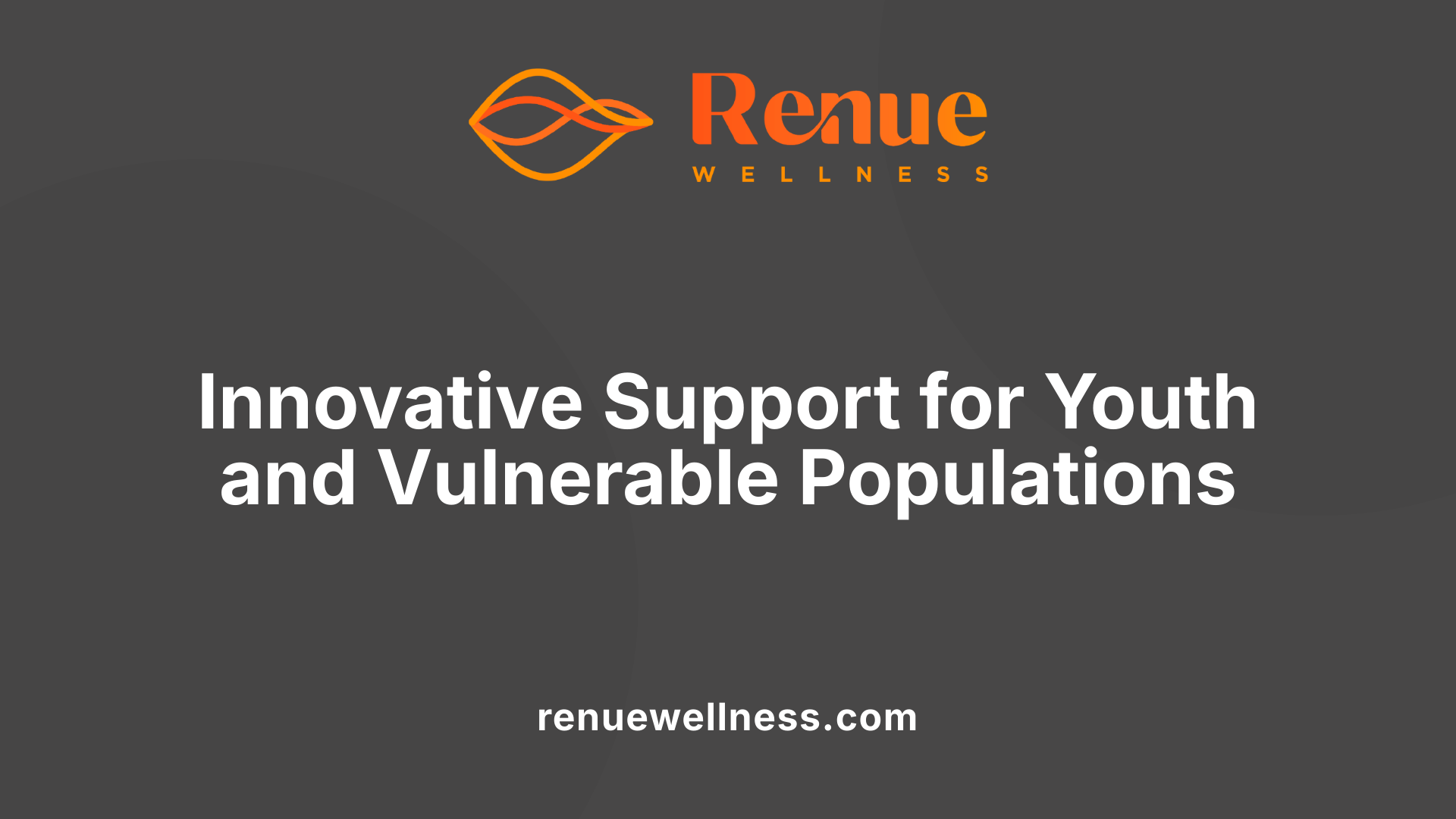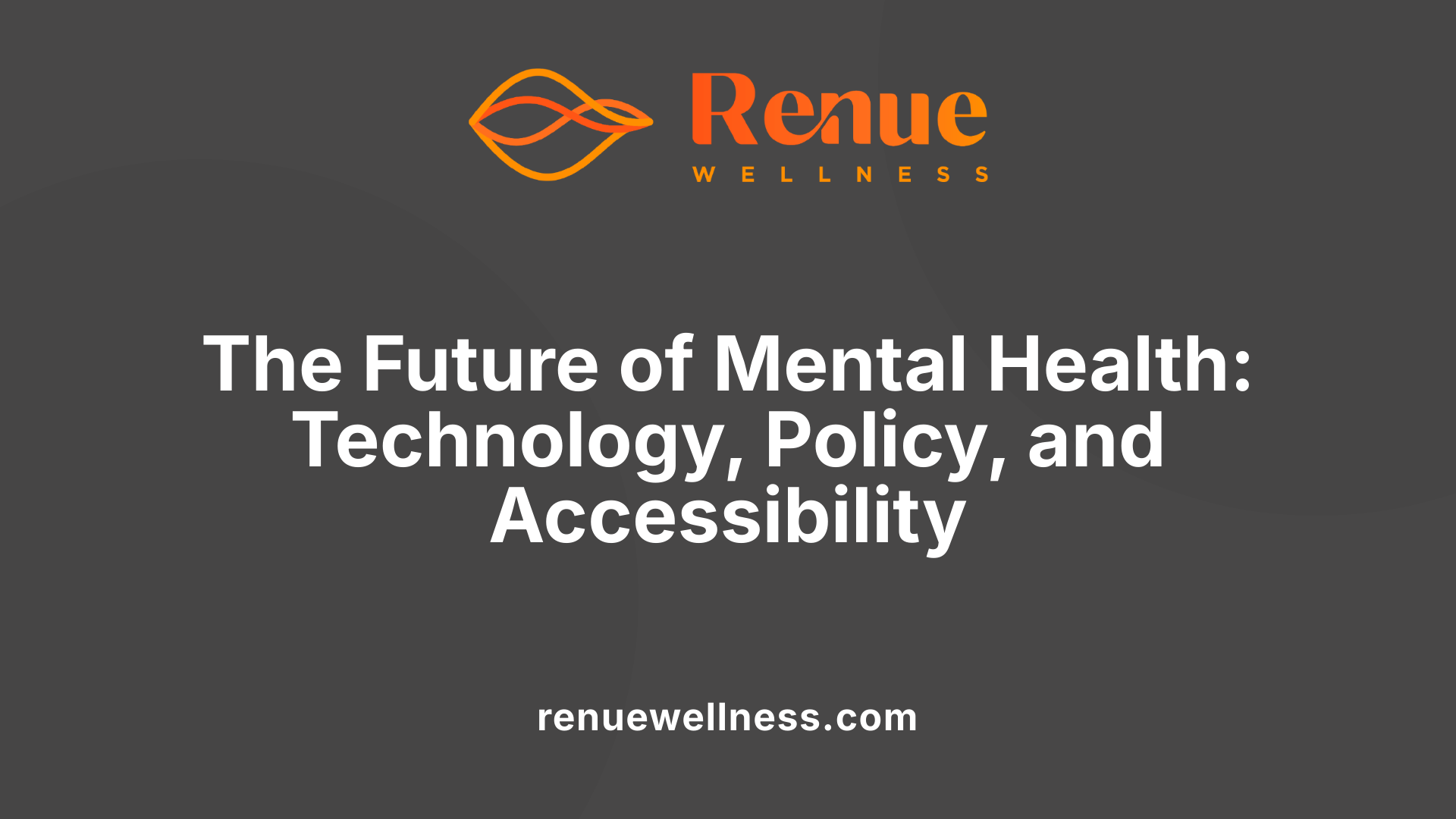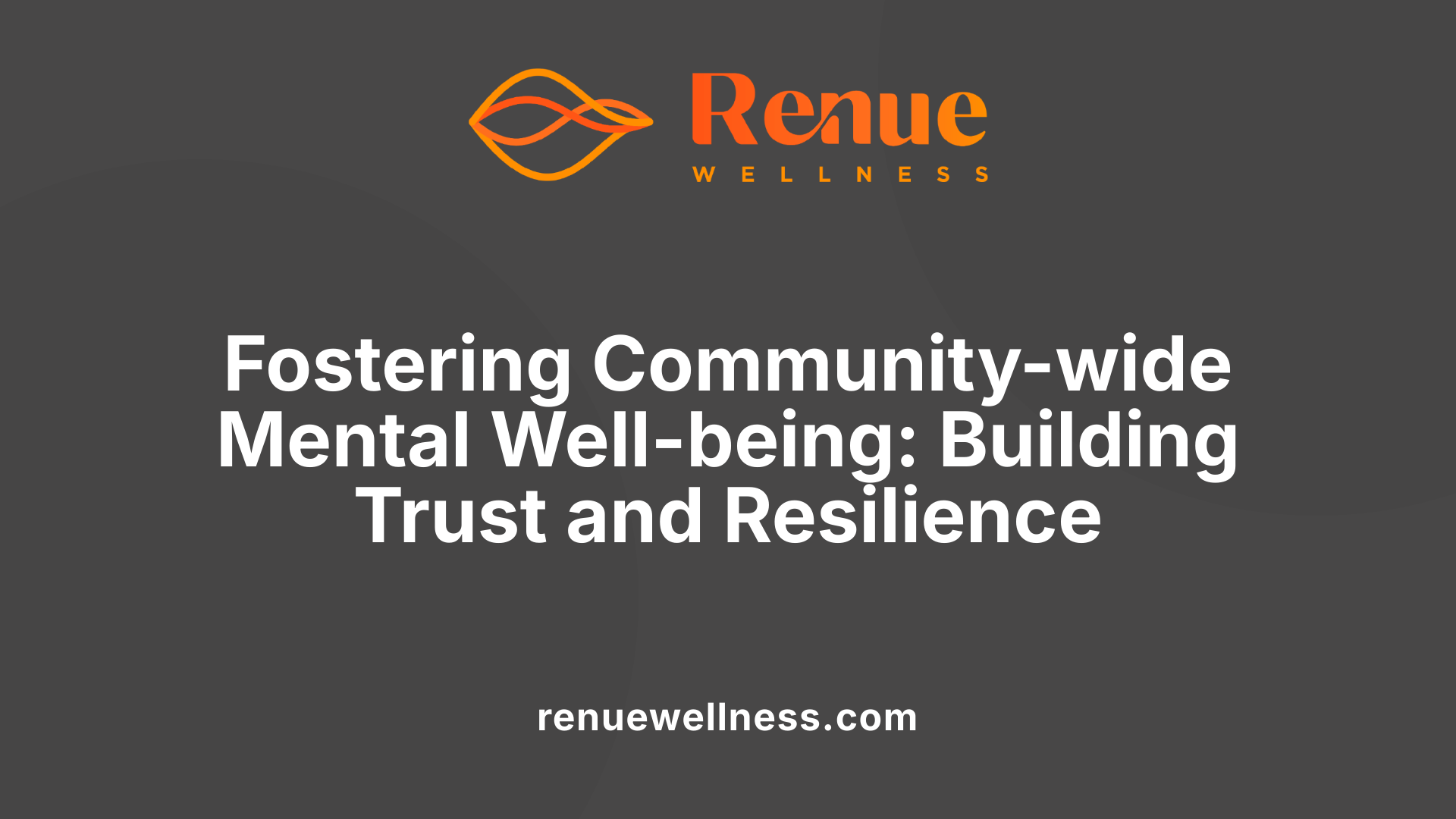Our Vision for the Future of Mental Health in NY & NJ


August 5, 2025
Pioneering a New Era in Mental Health Support
As mental health crises continue to impact communities across New York and New Jersey, regional leaders and organizations are crafting a comprehensive vision for a transformed, accessible, and holistic mental health system. With innovative programs, strategic investments, and community-centered initiatives, the future of mental health in these states emphasizes prevention, early intervention, workforce development, and equity. This article explores the region's ambitious plans, from policy reforms and community programs to technological integration and specialized support for vulnerable populations.
State and Regional Initiatives Driving Transformation

What are the state or regional initiatives to transform mental health care?
New York and New Jersey are undertaking comprehensive efforts to overhaul their mental health systems, focusing on expanding access, improving quality, and fostering collaboration across sectors. These initiatives are driven by policy reforms, strategic investments, and innovative programs designed to meet the rising mental health needs of diverse populations.
In New York, the state has dedicated $1 billion toward transforming its mental health system. This includes expanding community-based services such as crisis intervention teams, supportive housing, and school-based mental health programs. Additionally, efforts like the Safe Options Support Program and the B-HEARD emergency response team enhance crisis handling and reduce reliance on emergency room visits.
New Jersey's approach mirrors this commitment, with investments in mental health and psychosocial support services through the Division of Mental Health and Addiction Services. The state emphasizes expanding treatment options, integrating mental health with primary healthcare, and developing peer support initiatives, all aimed at closing treatment gaps.
Both states promote the creation of specialized crisis centers, including mobile crisis teams and co-response units in public spaces like NYC subway stations. These programs are part of broader reforms supporting early intervention, trauma-informed care, and person-centered services.
Centralized administrative bodies help coordinate efforts across various sectors. For example, Colorado’s Behavioral Health Administration consolidates services to improve efficiency and reduce fragmentation. Similarly, New York’s CONNECT program fosters ongoing partnerships between clinics, community organizations, and government agencies, ensuring seamless care for individuals in need.
Special attention is given to achieving health equity. Programs are tailored to serve high-risk groups—including underserved communities, LGBTQ+ populations, and racial minorities—by providing culturally competent services and reducing disparities.
These regional efforts reflect a shared goal: create a resilient, accessible, and integrated mental health system that supports individuals across all stages of life, emphasizing early intervention and community empowerment.
Innovative Programs and Infrastructure Expansion

What initiatives are in place to improve mental health support for youth and vulnerable populations in NY and NJ?
Both New York and New Jersey are undertaking comprehensive efforts to bolster mental health services for children, youth, and at-risk communities. In New York, expanded school-based programs, such as those reaching over 200,000 students, aim to reduce emergency visits and promote early intervention. Community initiatives like Street Homeless Outreach and Wellness deploy trained staff directly into neighborhoods to support homeless individuals and destitute youth.
In New Jersey, the Mental Health Association of New Jersey (MHANJ) advocates for anti-racism and equitable access, offering programs for marginalized groups including youth of color, LGBTQ+ individuals, and refugees. These initiatives promote prevention, resilience, and tailored support, aligning with federal strategies to close disparities and increase accessible services.
Both states emphasize partnerships between federal agencies, local organizations, and community leaders to address gaps, foster awareness, and provide specialized care for vulnerable populations, ensuring a more inclusive and adaptive mental health system.
What resources are available through New York City for mental health support?
New York City has developed a robust network of mental health resources designed to serve diverse populations. Central to this is the 988 Suicide and Crisis Lifeline, offering immediate access to crisis intervention for all residents.
Additionally, NYC provides community clinics and support groups that deliver counseling, therapy, and peer-led support, focusing on marginalized groups such as homeless individuals and those with severe mental illnesses. The city’s street outreach teams actively engage residents experiencing homelessness, offering mental health and wellness services.
Innovative programs like the CONNECT initiative foster collaboration among healthcare providers, social services, and community organizations to ensure continuous and comprehensive care. Expansion of inpatient beds, telehealth services, and community-based clinics are part of NYC’s strategic plan to improve access, reduce stigma, and support recovery for all New Yorkers.
Harnessing Technology and Policy for Future Readiness

What is the future of mental health care?
The future of mental health care is poised for transformative change driven by technological progress and systemic integration. Digital platforms and telehealth services are expected to become even more prevalent, offering accessible support to underserved and remote populations. These tools will enable more personalized and immediate treatment options, breaking down traditional barriers to care.
Artificial intelligence (AI) and machine learning will increasingly contribute to diagnosis and triage processes. These technologies can analyze data rapidly, identify early signs of mental health issues, and help clinicians prioritize urgent cases, leading to earlier intervention and better outcomes.
Moreover, efforts toward integrating behavioral health services with primary care will promote holistic treatment for individuals with mental health needs. This integration aims to streamline care, improve coordination among providers, and address mental health as a vital component of overall health.
Ultimately, these innovations aim to reduce stigma, enhance efficiency, and broaden access for diverse populations. The goal is a future where mental health support is seamlessly embedded in everyday healthcare, ensuring timely, effective, and equitable care for all.
What is the mental health crisis line in New York State?
In New York State, the 988 Lifeline serves as the primary point of contact for individuals facing mental health crises. This confidential, free service is available 24/7 through phone, text, and online chat, providing immediate access to crisis counseling, suicide prevention, and referral services.
When someone calls 988 in NY, their call is routed to a local crisis center, where trained professionals assess the situation and offer support. If needed, mobile crisis teams consisting of behavioral health experts respond directly to individuals at their home, school, or other locations. These teams provide short-term intervention, conduct assessments, and facilitate transportation to emergency facilities if necessary.
This integrated approach ensures that residents of New York have swift access to mental health resources in times of urgent need, connecting individuals with appropriate community and healthcare services. The expansion of 988 and accompanying mobile crisis teams underscores the state's commitment to robust, accessible mental health crisis response systems.
Building a Culture of Mental Well-being and Community Resilience

What is the vision for mental health services?
A comprehensive mental health approach aims to be culturally sensitive, prevention-focused, and holistic. It integrates mental health into early childhood programs, emphasizing that mental health is a community-wide responsibility. The vision promotes shared efforts among families, educators, clinicians, and administrators, encapsulated in the belief that "Mental Health is Everybody's Business."
Clear goals and outcomes are established to benefit children, families, staff, and the entire community. Continuous training and effective communication are integral to maintaining this vision. Collaboration through mental health consultation supports program objectives but recognizes that consultation alone cannot achieve all desired outcomes.
Developed collaboratively, this shared vision is expressed through common mission statements and language, fostering a long-term commitment to social-emotional health and well-being.
What efforts are underway to address mental health crises and improve crisis response systems?
NY & NJ are deploying multiple strategies to manage mental health emergencies more effectively. Expansion of crisis hotlines, notably the 988 Suicide and Crisis Lifeline, is central to this effort.
In NYC, specialized programs such as clinical co-response teams are deployed at subway stations to assist individuals experiencing mental health crises, especially during winter months when homelessness peaks.
Developments include a tele-consult line offering police officers direct access to mental health clinicians, aiming for quicker, more compassionate responses.
Legislative measures are also in progress to define and expand the legal authorities for involuntary treatment, ensuring individuals in severe distress receive prompt care.
Citywide programs like street outreach teams, clubhouse support programs, and dedicated crisis hotlines further reinforce intervention capabilities. These multi-layered efforts help connect individuals to appropriate care swiftly and compassionately, minimizing crises and fostering recovery.
Additional insights
Community resilience hinges on coordinated efforts to build trust and access. Initiatives such as mental health training for first responders, improved crisis evaluation protocols, and community engagement networks contribute to a more responsive and inclusive system for all residents.
Ultimately, these concerted actions aim to create a resilient environment where mental health crises are managed with dignity, and everyone can access the help they need in times of emergency.
A Roadmap for a Resilient Future
Both New York and New Jersey have articulated robust, innovative, and comprehensive visions for transforming mental health care. Through strategic investments, policy reform, technological integration, and community engagement, the two states are setting a precedent for accessible, equitable, and holistic support systems. By prioritizing prevention, early intervention, and support for vulnerable populations, the region aims to mitigate mental health crises and foster resilient, healthier communities. Continued collaboration among government agencies, healthcare providers, advocacy groups, and communities remains essential to realizing this shared vision for a future where mental health is elevated as a fundamental pillar of well-being.
References
- Transforming New York State's Continuum of Mental Health Care
- Mayor Adams Announces Plan to Provide Care for Individuals ...
- Department of Health | Integrated Health - NJ.gov
- Opinion: The future of mental health in NYC - City & State New York
- IRC NJ & NY Safety & Wellness Mental Health Programs: A 6-month ...
- Northwell launches $500M initiative to expand pediatric mental ...
- Strengthening Youth Mental Health - National Governors Association
Recent Posts
Conditions Treated
AnxietyDepressionOCDPTSDPostpartum DepressionPain ManagementSubstance AbuseSuicidal IdeationOur Location


